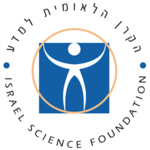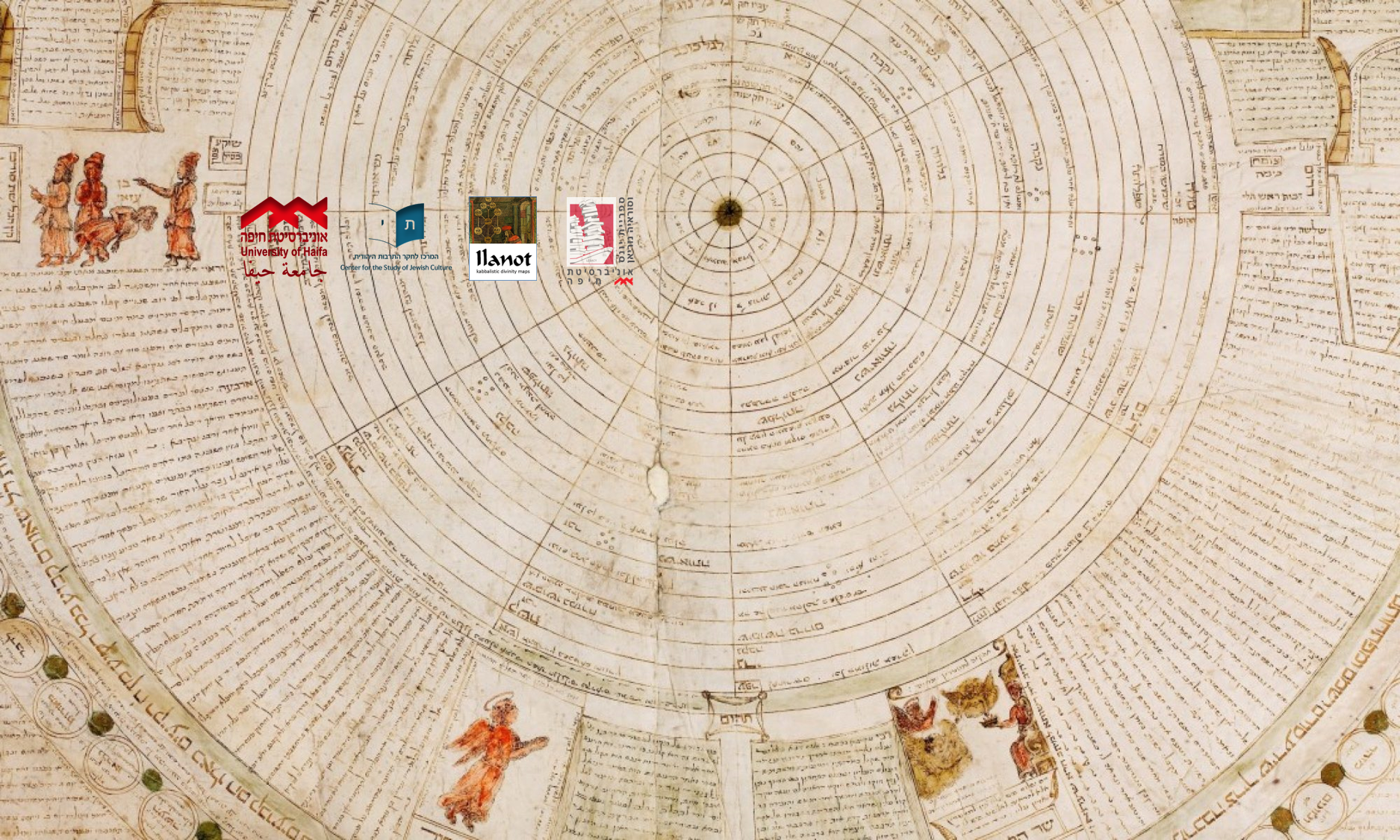Haifa Diagrammatic Digital Editions
An Israel Science Foundation Research Workshop

The Israel Science Foundation-funded Haifa Diagrammatic Digital Editions Workshop (27-29 June 2022) will be dedicated to an in-depth study of the methodological challenges that face scholars who have taken on the imposing task of preparing scientific digital editions of complex iconotextual manuscripts—and rotuli in particular. In artifacts in which texts and images must be engaged simultaneously to be understood, heuristic untangling is inevitable.
Nevertheless, historians of art and intellectual historians may find themselves equally intimidated by the “other” dimension of an integrated artifact and uncertain as to how best to proceed. The materiality of such manuscripts also demands consideration as the editions are conceptualized. How does such materiality effect the engagement with content? What “best practices” might be developed in order to create editions that honor the complex intersection of text, image, and medium that we find in ilanot (“trees” that map kabbalistic cosmology) and the rotuli witnesses of Peter of Poitiers’ Compendium historiae? How must we rethink the forms, functions, and possibilities of scientific editions in light of the possibilities and potential offered by new technologies and digital tools? How will these new editions, predicated on linked metadata, interact, and engage with library catalogues? How might libraries rethink the ways in which they document images, diagrams, and iconotexts in next-gen catalogues?
This workshop is intended to create opportunities for scholars working on comparable artifacts to share ideas and consider new possibilities of imagining the future of the research and publication of historical iconotexts in tandem with the development and implementation of innovative digital tools. To this end, an interdisciplinary international research team of scholars of art history, Kabbalah, Latin philology, medieval history, edition studies, and digital humanities will join the Ilanot Project team in Nazareth, Israel, for an intensive three-day workshop devoted to areas of mutual concern and interest.
DAY 1: 27 June 2022
Sources and Challenges
10:00–10:15: Welcome & Orientation
Eyal Ben-Eliyahu, Chair, Department of Jewish History, University of Haifa
10:15–12:00: The Ilanot Project
J. H. Chajes, University of Haifa: A “New” Genre: Ilanot and the Ilanot Project
Uri Safari & Eliezer Baumgarten, University of Haifa: Ilanot Interimaginality and Ontological Dynamics
Hanna Gentili, University of Haifa: Trees, Texts, and Translations
14:00–16:00: The Compendium historiae Project
Andrea Worm, Eberhard Karls Universität Tübingen: The Compendium historiae Project: A Brief Introduction
Joris Corin Heyder, Eberhard Karls Universität Tübingen: Peter of Poitiers’ Compendium historiae in genealogia Christi: Work and Transmission
Andrea Worm, Eberhard Karls Universität Tübingen: Diagramming the Ark of Noah in Peter of Poitiers’ Compendium historia
16:00–17:00: Talismanic Charts
Bink Hallum, British Library/University of Warwick & Amila Buturović, York University, Toronto: Iconotextual Instruments of Health and Protection: Ottoman Talismanic Charts in the National Museum of Bosnia and Herzegovina
17:00–18:00: Linking Schematic & Annotated Images: The Digital Mappa Platform
Lisa Fagin Davis, Medieval Academy of America: The Genealogical Diagrams of the Chronique anonyme universelle
DAY 2: 28 June 2022
Approaches
9:00–11:00: Images and Diagrammatic Manuscripts
Zef Segal, The Open University of Israel: Topological Similarity as Means of Comparing and Clustering Diagrams
Patrick Sahle, Bergische Universität Wuppertal: Critical Representation of Diagrams in Scholarly Editing
11:30–14:30: Historical and Culinary Nazareth Walking Tour (includes lunch)
Special guest: Efraim Lev, Dean of Humanities, University of Haifa
14:30–16:30: Texts and Diagrammatic Manuscripts
Tessa Gengnagel, Universität zu Köln: Digital Scholarly Editions Beyond Text: On the Interpictorial Challenges of Medieval Manuscript Transmission
Franz Fischer, Università Ca’ Foscari Venezia: Graph Encoding – A TEI model for Peter of Poitiers’ Compendium historiae
16:30-17:30
Moshe Lavee & Hadar Miller, University of Haifa: Modeling of and Text Reuse Solutions for Multi-Hierarchical Interrelated Texts
17:30-18:30: Linked Metadata to/as Critical Editions
Alexander Janke and Uwe Sikora, SUB Georg-August-Universität Göttingen: Mapping Knowledge in Maps of God: Towards an Ontology of Ilanot
DAY 3: 29 June 2022
Next Steps
9:00–11:00: Digital Editions, Libraries, and Catalogs
Christoph Kudella, SUB Georg-August-Universität Göttingen, Editions in the German National Research Data Infrastructure
Emma Abate, University of Bologna – IRHT/CNRS, Paris, Iconographic Inventory and Cataloging of Kabbalistic Diagrams in BiNaH (Bibliothèque nationale de France “Hebraica”)
Keren Barner, Younes and Soraya Nazarian Library, University of Haifa, E-library: Visual Materials & Digital Editions in the University of Haifa Library
12:30–14:30: Roundtable & Open Floor
J. H. Chajes (Chair), Patrick Sahle, Lisa Fagin Davis, Yael Netzer, Christoph Kudella
16:30-18:30: The Gross Family Ilanot Collection
William Gross, Discovering Ilanot and Building a Collection
J. H. Chajes, Ilanot Masterworks in the Gross Collection
Participants
Emma Abate, University of Bologna – IRHT/CNRS, Paris
Keren Barner, University of Haifa Library
Eliezer Baumgarten, University of Haifa
Amila Buturović, York University, Toronto
J. H. Chajes, University of Haifa
Lisa Fagin Davis, Medieval Academy of America
Franz Fischer, Università Ca’ Foscari Venezia
Tessa Gengnagel, Universität zu Köln
Hanna Gentili, University of Haifa
Bink Hallum, British Library/University of Warwick
Joris Corin Heyder, Eberhard Karls Universität Tübingen
Alexander Janke, SUB Georg-August-Universität Göttingen
Christoph Kudella, SUB Georg-August-Universität Göttingen
Moshe Lavee, University of Haifa
Hadar Miller, University of Haifa
Elly Moseson, YIVO, New York
Yael Netzer, University of Haifa, Dicta
Uri Safari, University of Haifa
Haifa Diagrammatic Digital Editions
An Israel Science Foundation Research Workshop

The Israel Science Foundation-funded Haifa Diagrammatic Digital Editions Workshop (27-29 June 2022) will be dedicated to an in-depth study of the methodological challenges that face scholars who have taken on the imposing task of preparing scientific digital editions of complex iconotextual manuscripts—and rotuli in particular. In artifacts in which texts and images must be engaged simultaneously to be understood, heuristic untangling is inevitable.
Nevertheless, historians of art and intellectual historians may find themselves equally intimidated by the “other” dimension of an integrated artifact and uncertain as to how best to proceed. The materiality of such manuscripts also demands consideration as the editions are conceptualized. How does such materiality effect the engagement with content? What “best practices” might be developed in order to create editions that honor the complex intersection of text, image, and medium that we find in ilanot (“trees” that map kabbalistic cosmology) and the rotuli witnesses of Peter of Poitiers’ Compendium historiae? How must we rethink the forms, functions, and possibilities of scientific editions in light of the possibilities and potential offered by new technologies and digital tools? How will these new editions, predicated on linked metadata, interact, and engage with library catalogues? How might libraries rethink the ways in which they document images, diagrams, and iconotexts in next-gen catalogues?
This workshop is intended to create opportunities for scholars working on comparable artifacts to share ideas and consider new possibilities of imagining the future of the research and publication of historical iconotexts in tandem with the development and implementation of innovative digital tools. To this end, an interdisciplinary international research team of scholars of art history, Kabbalah, Latin philology, medieval history, edition studies, and digital humanities will join the Ilanot Project team in Nazareth, Israel, for an intensive three-day workshop devoted to areas of mutual concern and interest.
DAY 1: 27 June 2022
Sources and Challenges
10:00–10:15: Welcome & Orientation
Eyal Ben-Eliyahu, Chair, Department of Jewish History, University of Haifa
10:15–12:00: The Ilanot Project
J. H. Chajes, University of Haifa: A “New” Genre: Ilanot and the Ilanot Project
Uri Safari & Eliezer Baumgarten, University of Haifa: Ilanot Interimaginality and Ontological Dynamics
Hanna Gentili, University of Haifa: Trees, Texts, and Translations
14:00–16:00: The Compendium historiae Project
Andrea Worm, Eberhard Karls Universität Tübingen: The Compendium historiae Project: A Brief Introduction
Joris Corin Heyder, Eberhard Karls Universität Tübingen: Peter of Poitiers’ Compendium historiae in genealogia Christi: Work and Transmission
Andrea Worm, Eberhard Karls Universität Tübingen: Diagramming the Ark of Noah in Peter of Poitiers’ Compendium historia
16:00–17:00: Talismanic Charts
Bink Hallum, British Library/University of Warwick & Amila Buturović, York University, Toronto: Iconotextual Instruments of Health and Protection: Ottoman Talismanic Charts in the National Museum of Bosnia and Herzegovina
17:00–18:00: Linking Schematic & Annotated Images: The Digital Mappa Platform
Lisa Fagin Davis, Medieval Academy of America: The Genealogical Diagrams of the Chronique anonyme universelle
DAY 2: 28 June 2022
Approaches
9:00–11:00: Images and Diagrammatic Manuscripts
Zef Segal, The Open University of Israel: Topological Similarity as Means of Comparing and Clustering Diagrams
Patrick Sahle, Bergische Universität Wuppertal: Critical Representation of Diagrams in Scholarly Editing
11:30–14:30: Historical and Culinary Nazareth Walking Tour (includes lunch)
Special guest: Efraim Lev, Dean of Humanities, University of Haifa
14:30–16:30: Texts and Diagrammatic Manuscripts
Tessa Gengnagel, Universität zu Köln: Digital Scholarly Editions Beyond Text: On the Interpictorial Challenges of Medieval Manuscript Transmission
Franz Fischer, Università Ca’ Foscari Venezia: Graph Encoding – A TEI model for Peter of Poitiers’ Compendium historiae
16:30-17:30
Moshe Lavee & Hadar Miller, University of Haifa: Modeling of and Text Reuse Solutions for Multi-Hierarchical Interrelated Texts
17:30-18:30: Linked Metadata to/as Critical Editions
Alexander Janke and Uwe Sikora, SUB Georg-August-Universität Göttingen: Mapping Knowledge in Maps of God: Towards an Ontology of Ilanot
DAY 3: 29 June 2022
Next Steps
9:00–11:00: Digital Editions, Libraries, and Catalogs
Christoph Kudella, SUB Georg-August-Universität Göttingen, Editions in the German National Research Data Infrastructure
Emma Abate, University of Bologna – IRHT/CNRS, Paris, Iconographic Inventory and Cataloging of Kabbalistic Diagrams in BiNaH (Bibliothèque nationale de France “Hebraica”)
Keren Barner, Younes and Soraya Nazarian Library, University of Haifa, E-library: Visual Materials & Digital Editions in the University of Haifa Library
12:30–14:30: Roundtable & Open Floor
J. H. Chajes (Chair), Patrick Sahle, Lisa Fagin Davis, Yael Netzer, Christoph Kudella
16:30-18:30: The Gross Family Ilanot Collection
William Gross, Discovering Ilanot and Building a Collection
J. H. Chajes, Ilanot Masterworks in the Gross Collection
Participants
Emma Abate, University of Bologna – IRHT/CNRS, Paris
Keren Barner, University of Haifa Library
Eliezer Baumgarten, University of Haifa
Amila Buturović, York University, Toronto
J. H. Chajes, University of Haifa
Lisa Fagin Davis, Medieval Academy of America
Franz Fischer, Università Ca’ Foscari Venezia
Tessa Gengnagel, Universität zu Köln
Hanna Gentili, University of Haifa
Bink Hallum, British Library/University of Warwick
Joris Corin Heyder, Eberhard Karls Universität Tübingen
Alexander Janke, SUB Georg-August-Universität Göttingen
Christoph Kudella, SUB Georg-August-Universität Göttingen
Moshe Lavee, University of Haifa
Hadar Miller, University of Haifa
Elly Moseson, YIVO, New York
Yael Netzer, University of Haifa, Dicta
Uri Safari, University of Haifa
Patrick Sahle, Bergische Universität Wuppertal
Zef Segal, The Open University of Israel
Uwe Sikora, SUB Georg-August-Universität Göttingen
Abstracts and bios may be found in the PDF booklet, linked here.



